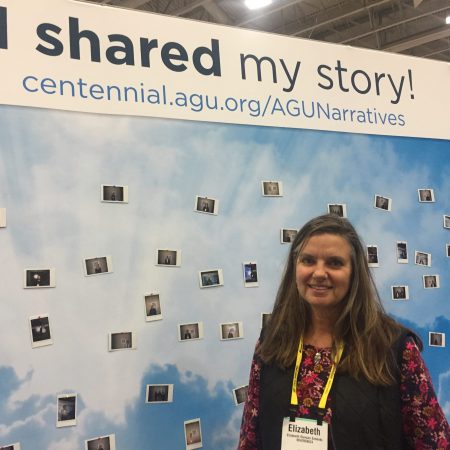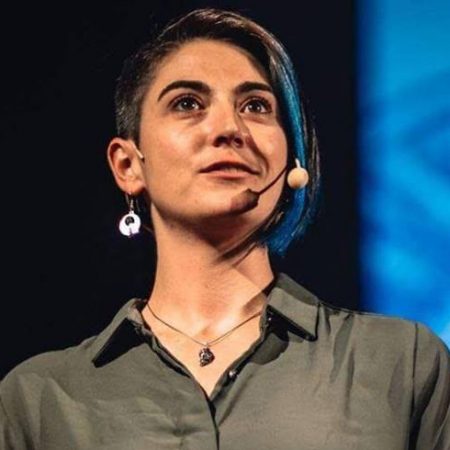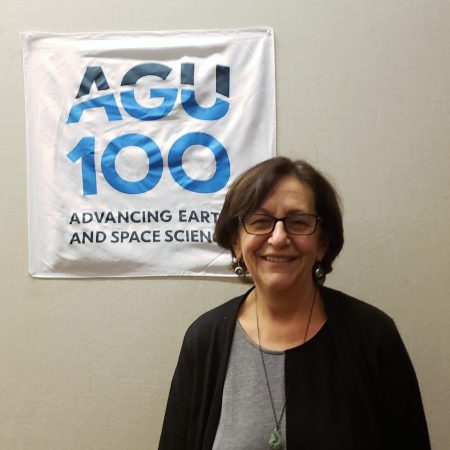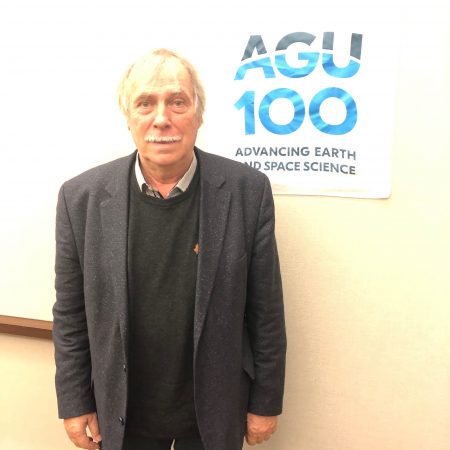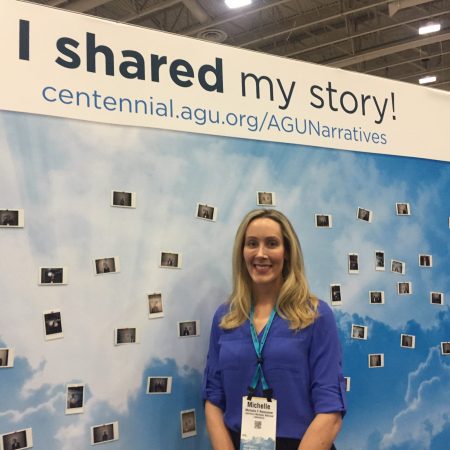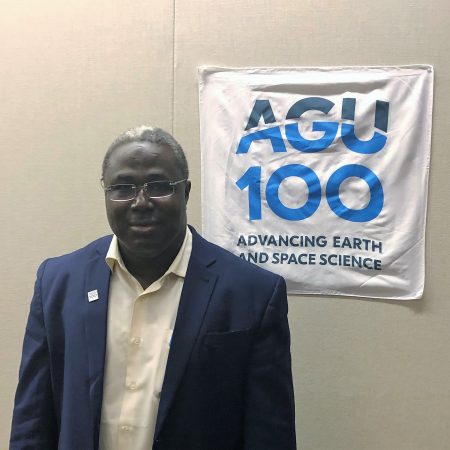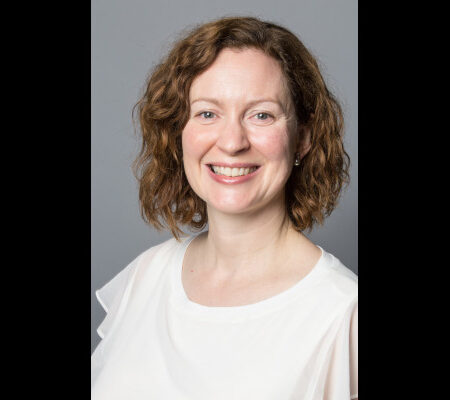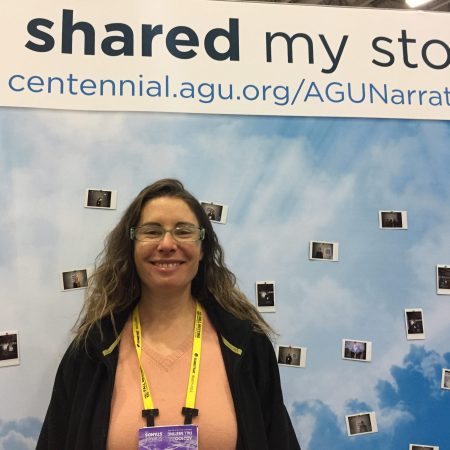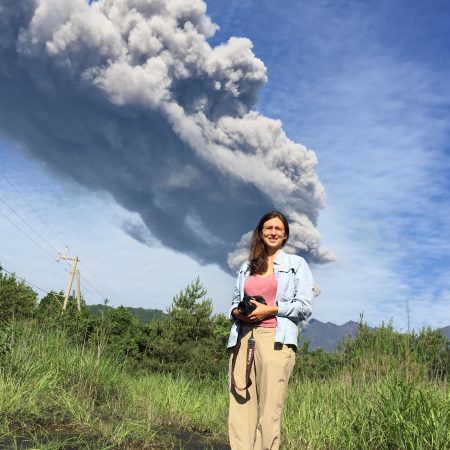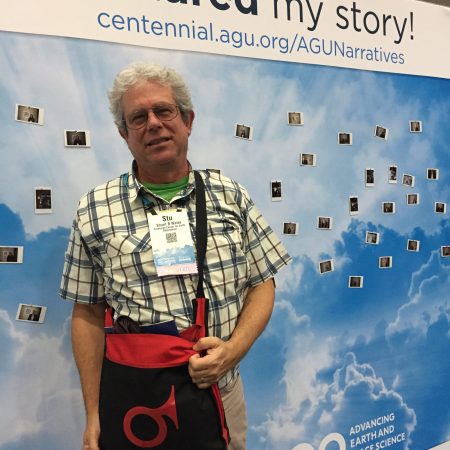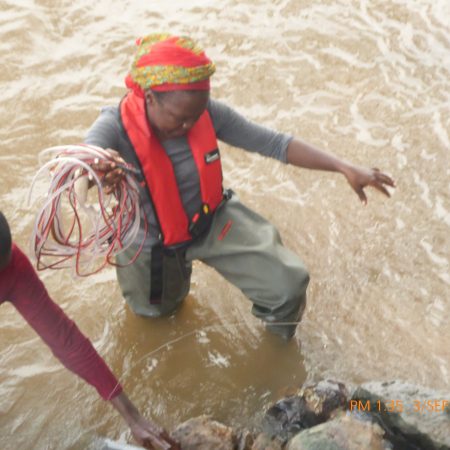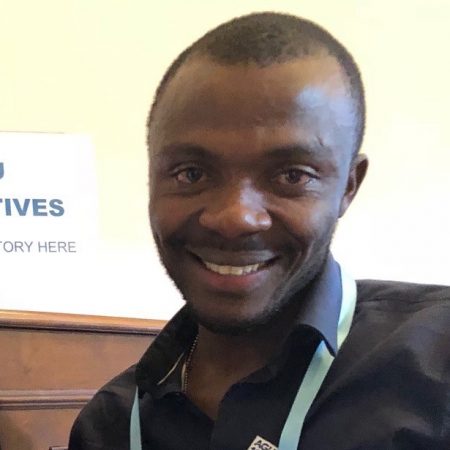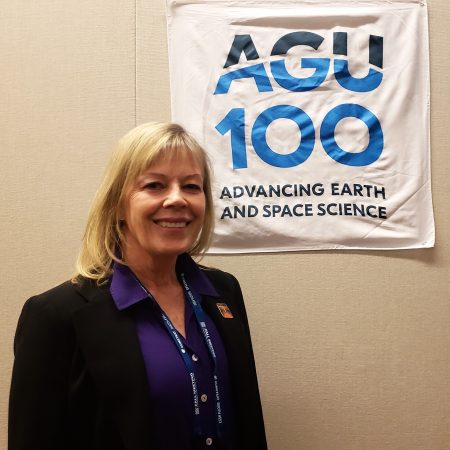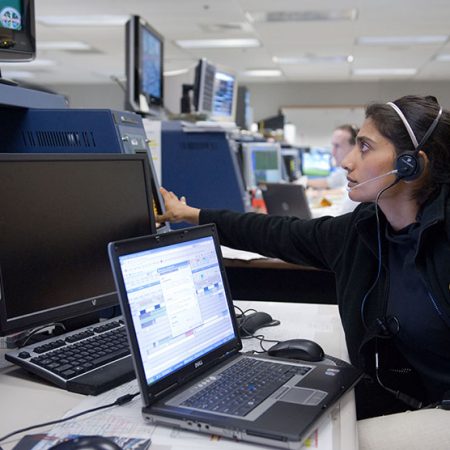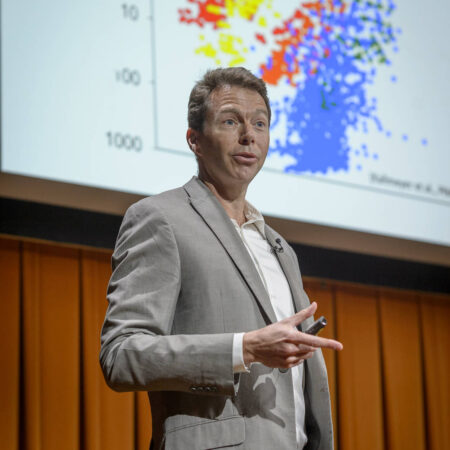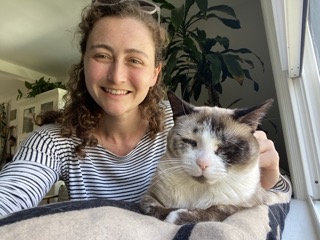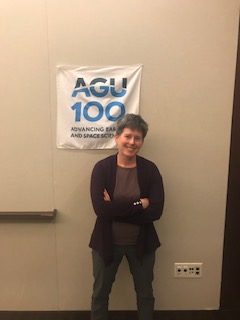Refine
Date Range Clear
Recorded by Clear
Keywords Clear
Partnerships Clear
Organizations Clear
- American Geophysical Union 69
- NASA 20
- National Aeronautics and Space Administration 9
- The American Geophysical Union 5
- American Geopysical Union 4
- 26 more
Places Clear
- AGU 2018 Fall Meeting 169
- Washington DC 169
- AGU 2019 Fall Meeting 22
- San Francisco 22
- AGU 2017 Fall Meeting 5
- 90 more
Languages Clear
Initiatives Clear
Sarah and Glenn discuss the importance of collaborating with and speaking to others about the importance of sustainability and eco-friendly actions. We also discuss the positive internal benefits of voluntarily changing behaviors to address climate change and how this can...
Kim Cobb loves being out in the field. She talks about the euphoria and passion she has for it, saying “It's like nothing I've ever experienced literally, and I've given birth to four children.” In this interview, she talks about...
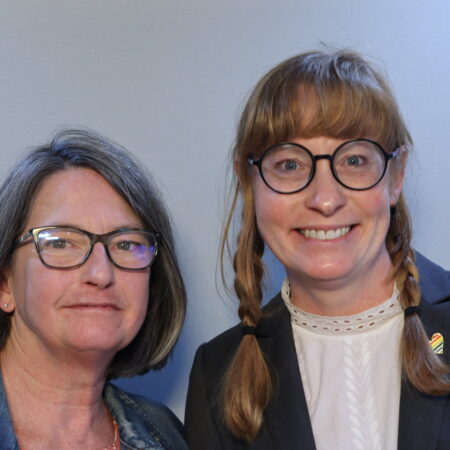
Partners in crime, friends, and colleagues Farley McDonough (58) and Natalie Johnson (47) discuss their collaborations and community work in Manitou Springs, Colorado. They also reflect on their life paths and where they are headed next, particularly as Farley moves...
Ellen and Lonnie share stories of their lives and careers together as paleoclimatologists collecting ice cores. The two also discuss how the common language of science transcends boundaries and can build bridges. (Recorded 14 December 2017)
Karen Prestegaard is a professor of hydrology at the University of Maryland, and she studies rivers, wetlands, watersheds, water quality, minerals, floods, and rainfall and watershed management. As a graduate student, the California Coastal Commission hired Karen to study Los...
How can scientists capture the public’s imagination with science? In this interview, Gordon Grant, a research hydrologist with the US Forest Service and President-elect of AGU'S Earth and Planetary Surface Processes Section, shares his experience of bringing a river to...
Engaging young students outside of the classroom can help further a life-long interest in science. Elizabeth Eubanks is trying to bring these kinds of experiences to as many kids as she can. As a science teacher, she’s heard from students...
James Famiglietti, hydrologist and Director of the Global Institute for Water Security, University of Saskatchewan, discusses his work with NASA's Gravity Recovery and Climate Experience (GRACE) and the evolution of technology throughout his career including its impact on water security....
Kayla Iacovino's research seeks to better understand the inner workings of crustal volcanic systems; drawing inspiration from Star Trek, she strives to harness geochemical information to improve lives. In this interview Dr. Iacovino talks about the hurdles she has overcome,...
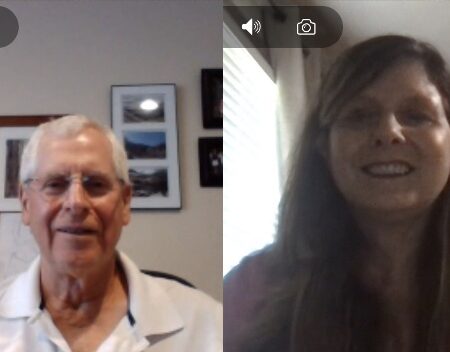
One Small Step partners Stephen "Steve" Astoria (71) and Kelley Marlin (55) share a conversation about their work, their families, the COVID-19 pandemic, and the most influential people in their lives. They also talk about how their personal values have...
Sonia Esperanca, Program Director for the National Science Foundation, supports earth-science research in the academic community. She shares her journey from Rio de Janeiro to the United States, Israel, Australia, and elsewhere. Having an understanding of landscapes across the world...
With complex modeling to guide future decisions, Daniel Schertzer, Parisian professor at Ecole des Ponts ParisTech and nonlinear geophysicist is leading the field into new territory – urban climate challenges. Cities, each occupying a relatively small portion of the earth,...
Michelle Newcomer is now a research scientist at Lawrence Berkeley National Lab but her first degree was in French and Sociology. She talks here about the fear that comes with changing careers, taking risks, and pursuing the path that you...
Frédéric Ouattara, Universite de Koudougou, knows the practical implications of his research into the ionosphere. Our mobile phone signals become worse due to the weakening of the ionosphere. In Burkina Faso, he helps train the next-generations of geoscientists. The 2018...
Why should open source have all the fun? Clare Dillon shares her experience in the wonderful world of innersource, the application of open source practices within organizations. Collaboration is just too exciting not to share!
Adeena Teres is a high school science teacher in Florida, although she tried a few different careers before following her passion for teaching. As a teacher, there are always opportunities to inspire students either into science careers or towards other...
The only interviewee to describe her chosen field as a “hoot,” Sonja Behnke, Los Alamos National Laboratory, has been actively involved in atmospheric electricity research since 2008. Before that, she was a math instructor as an AmeriCorps volunteer. As a...
“When you find yourself climbing San Bruno Mountain just south of San Francisco with a butterfly net collecting mission blue butterflies to repopulate on Earth Day, it doesn't get better than this.” Stuart Weiss is passionate about conservation ecology. He’s...
Catherine Mushi, PhD student studying Water Resources Engineering at the University of Dar es Salaam discusses her work in the Congo River Basin and collaborating with peers both in the field and within the community. She shares her experience as...
Atanas Dommo shares his experiences as a Ph.D. student from Cameroon Africa. He discusses how his desire to learn more inspired him to pursue a career in the sciences. His speaks of his passion and motivation for understanding our changing...
Laurie Cantillo, the Deputy Director of Communications and Education at the Jet Propulsion Laboratory, talks about her journey to become a science communicator. She developed an interest in science at an early age spending time in the outdoors with her...
Mamta Nagaraja started her career as an engineer but has adroitly transitioned into a position in science communications at NASA, where she strives to craft science into stories that will inspire others. Listen to Dr. Nagaraja discuss her path to...
Dr. Tori Hoehler is a scientist at NASA Ames, with a background in chemistry and oceanography. He now studies the interaction of microbial communities with their environment, with an emphasis on the habitability of environments beyond Earth and the detectability...
I take some time to reflect on the course, Psychology of Environmental Stewardship taught by Dr. De Young at the University of Michigan's School for the Environment and Sustainability. I talk about my main take-aways from the course like the...
“What is the earth saying to us?” Jackie Caplan-Auerbach is a volcano seismologist with the Western Washington University geology department. Jackie studies ice avalanches, which can happen at any time. Most ice landslides do not give warnings, but some do....
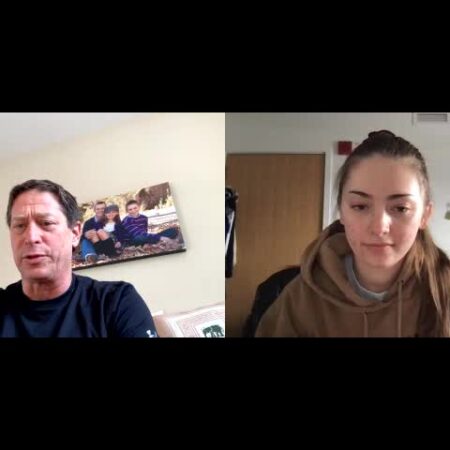
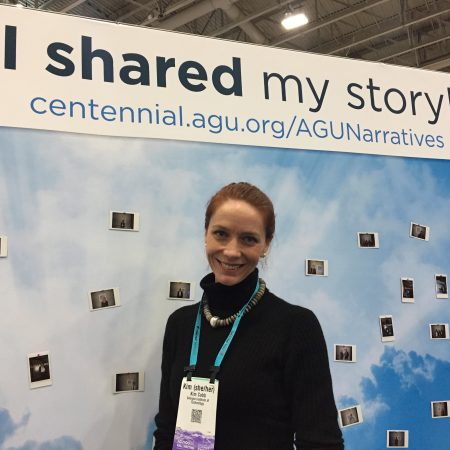
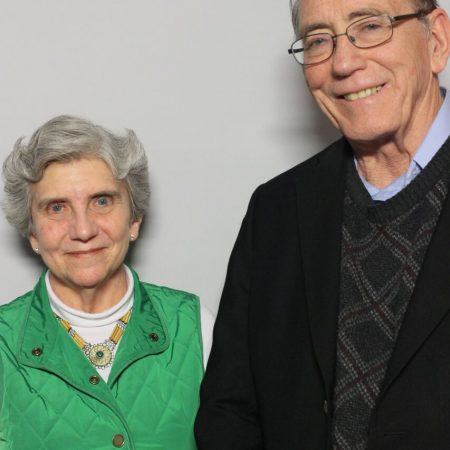
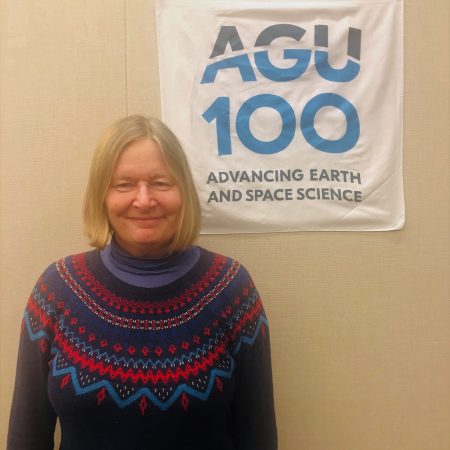
!["Science is a process of understanding nature; [we can] help people see science as a means of doing that." an interview with Gordon Grant](https://archive.storycorps.org/uploads/2019/02/20181211_Gordon-Grant-450x450.jpg)
